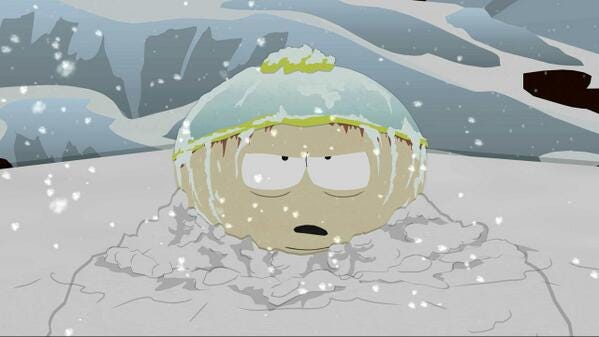The COVID-19 pandemic quickly produced a surge of scientific papers. While the rush to publish results about a public health crisis is understandable, peer-review quality control was not all it ought to have been. According to RetractionWatch.com, 214 COVID studies have been retracted so far.
Number 213 on that list is a paper on whole-body cryotherapy as a treatment for the smell loss experienced by many COVID-19 patients. Carried out by a group of French researchers, it was published online on January 13, 2022 and retracted by the authors last week.
Was it pulled because the idea of reversing smell loss with brief full-body exposure to -110ºC temperature is bogus?
No. The paper had undergone peer review and three rounds of revisions.
The authors pulled the paper because the simple ethics statement they provided to participants was inadequate under French law; the protocol should have been reviewed by a entity called the Committee for the Protection of Persons.
Yes, we need to make sure that research subjects are treated ethically. But other studies have employed cryotherapy and it seems unlikely that its use in this instance was any more risky; the authors just failed to jump through the correct bureaucratic hoops.
More importantly, is there merit to the idea that quick chill sessions can restore COVID smell loss? The authors don’t provide a detailed rationale; instead they point to findings of olfactory neuro-inflammation associated with COVID-19 smell loss and make some noises about cryotherapy reducing inflammation in other disorders.
That’s not exactly a model of deductive reasoning. On the other hand, what’s the harm in trying? Here I side with Paul Feyerabend’s stance on scientific method, namely that “anything goes.” The current scientific establishment suffers from a lack of risk taking, and if a group of researchers wants to explore a weird possibility, then why not?
Granted, the study has its shortcomings. For example, smell status was assessed by self-report, not actual sensory testing. And differences in treatment condition (e.g., number of visits to the clinic across the control, low- and high-dose treatment groups) could have produced different levels of (placebo) motivation. Nevertheless, the statistical analysis shows a significant improvement in the high-dose group.
Fabian D. Legrand, Guillaume Polidori, Fabien Beaumont, Bastien Bouchet, Agnes Morin, Stephane Derruau, and Esteban Brenet. (2022). Whole-body cryotherapy as an innovative treatment for COVID 19-induced anosmia-hyposmia: A feasibility study. Journal of Integrative and Complementary Medicine 28:e284–e288.




